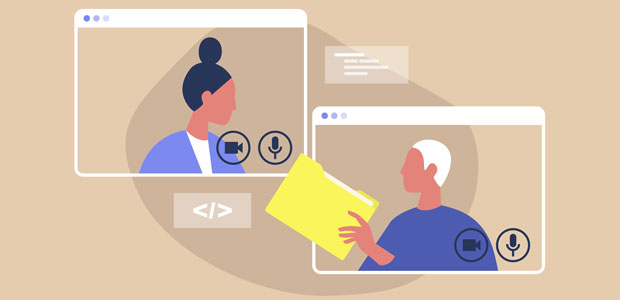
A Great Digital Catch Up to ‘level up’ backed by new public polling
A post-COVID-19 Great Digital Catch Up - to support 4.5 million people to cross the digital divide - is presented as the solution to fix the UK’s digital divide in a new report by digital inclusion charity, Good Things Foundation.
A Blueprint for a 100% Digitally Included UK calls on the Government to level up opportunity by investing £130m over four years, alongside businesses. This is equivalent to two percent of the super fast broadband infrastructure budget. It will help the economy grow, address inequalities and transform our digital landscape.
Good Things Foundation argues that investing in super fast broadband without investing in digital inclusion will deepen the digital divide.
The plan has already attracted significant public backing. New public polling by Ipsos MORI on behalf of Good Things Foundation shows that 75% of people polled agree that every community in the UK needs a place where people can visit to get help with their internet skills.
The new public polling data comes as 32 MPs throw their weight behind the Great Digital Catch Up by calling for an urgent debate in Parliament.
The cross-party group of MPs, led by former cabinet minister Esther McVey MP, and including chairs of the Education, DCMS and BEIS committees, say that: "COVID-19 has made digital inclusion more important than ever before."
The Prime Minister has pledged a world class gigabit-capable broadband for every home and business across the UK by 2025. Yet nine million people still can’t use the internet independently and are being left behind with devastating consequences.
COVID-19 has made digital inclusion more important than ever before, and has changed how we live, work, trade, and consume. Basic digital skills are as important as English and Maths. At least 82% of jobs require digital skills, making digital inclusion more important today than ever before.
In the Blueprint, as well as a Great Digital Catch Up to support 4.5 million people to cross the digital divide, Good Things Foundation calls for:
- A Data Poverty Lab to co-design solutions to data poverty, from social prescribing to piloting a ‘Gigabit-Giveabit’ scheme to channel public generosity through the donation of unused data.
A new Digital Strategy for everyone, which hardwires digital inclusion into financial, health and government public services, so no-one is left behind. - Of those polled by Ipsos MORI, 61% agree that internet access by fixed line or mobile should be recognised as an essential utility, like electricity; and 47% would donate unused data to low income families.
Of those polled by Ipsos MORI, 61% agree that internet access by fixed line or mobile should be recognised as an essential utility, like electricity; and 47% would donate unused data to low income families.
Good Things Foundation, led by Chief Executive, Helen Milner OBE, is a social change charity set up to help people to improve their lives through digital so they can be happier, healthier and better off. Good Things works with community partners across the UK. Since the start of the pandemic, they have seen a huge surge in demand for support with digital access, affordability advice and a range of essential life skills.
Helen Milner OBE, Good Things Foundation Chief Executive, said: “It’s absolutely critical that everyone - especially those most vulnerable in the pandemic - has the digital access, skills and support they need to live. Digital has been a lifeline for all of us during lockdown. People who are locked out of digital are facing impossible challenges. We’re ready to work with the Government to invest in our national future. Let’s be world-leaders in digital inclusion - make digital inclusion an economic priority, and act now to fix this together. A Great Digital Catch Up leaves nobody behind.”
Liz Williams MBE, FutureDotNow Chief Executive and Good Things Foundation Chair, said: “This plan will help kickstart the economy and support business. Time to stop talking - and start doing. We can grow the economy by almost £15 for every £1 invested in digital skills and inclusion. Investing in digital skills benefits everyone - employers, employees, and local communities.
"At a time when job seekers have never been more vulnerable, prioritising digital skills inclusion is key. We know that manual workers with high digital skills earn around £2,160 more a year than those in the same jobs with low digital skills. Everyone deserves the opportunity for a better future. Let’s collectively tackle the digital divide - and improve life for everyone.”
Calling for a backbench business debate and investment in a digital catch up scheme, 32 MPs - led by Rt Hon Esther McVey - said: “Nine million people have been locked out of the digital economy and can’t use the internet independently - COVID-19 has made digital inclusion more important than ever before. [We call] on the Government to invest in a digital catch up scheme as part of the Comprehensive Spending Review 2020 to fire up the post-COVID economy, level up opportunity and lead to a fairer economy, stronger society and better lives.”


